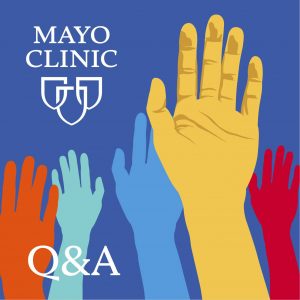
Although COVID-19 has been seen as a disease that primarily affects the lungs, it can affect other organs, including the heart.
Organ damage can lead to health complications that linger after being infected with COVID-19. People with heart disease are at an increased risk of more severe complications from COVID-19, but anyone infected with COVID-19 could be at risk for heart problems.
"Not only have we learned that COVID-19 can cause cardiac injury through multiple mechanisms, but the virus in rare cases, particularly in young males, can cause myocarditis, a specific form of cardiac injury," says Dr. Leslie Cooper, chair of the Department ofCardiology at Mayo Clinic in Florida.
Many people who are infected with COVID-19 experience shortness of breath, which could be a sign of heart complications and needs further investigation.
"The illness itself leads to deconditioning because you're not as active you normally are," explains Dr. Cooper. "So going back to activity take time."
It's hard for the individual to tell which is the cause of their symptoms. Is it the heart, the lungs or deconditioning? I would recommend seeing a medical provider if you've still got symptoms. We can sort that out with generally noninvasive and simple testing," says Dr. Cooper.
While there is a slight risk of myocarditis as a temporary side effect of vaccination for COVID-19, particularly in young males, the Centers for Disease Control and Prevention still recommends vaccination for everyone 5 and up.
Dr. Cooper agrees.
"The likelihood of a bad thing happening — a hospitalization or dying from the virus itself — is greater with the virus than it is with a vaccine in every case, every analysis, in every study done."
On the Mayo Clinic Q&A podcast, Dr. Cooper discusses COVID-19 infection and the heart.
Watch: Dr. Cooper discuss COVID-19 infection and the heart.
_____________________________
For the safety of its patients, staff and visitors, Mayo Clinic has strict masking policies in place. Anyone shown without a mask was recorded prior to COVID-19 or recorded in an area not designated for patient care, where social distancing and other safety protocols were followed.
Information in this post was accurate at the time of its posting. Due to the fluid nature of the COVID-19 pandemic, scientific understanding, along with guidelines and recommendations, may have changed since the original publication date.
For more information and all your COVID-19 coverage, go to the Mayo Clinic News Network and mayoclinic.org.








